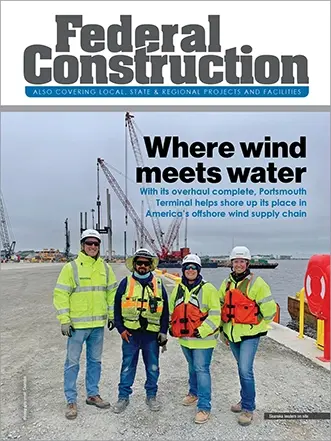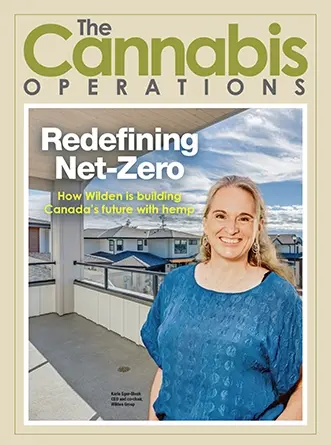When winter’s chill creeps in and your old furnace starts sputtering, it’s tempting to consider rolling up your sleeves and handling the problem yourself. After all, how hard could furnace installation really be?
That question—and others like it—are more common than you might think. But while DIY has its place, installing a furnace isn’t one of them. In this Q&A-style article, we break down the myths, safety concerns, and long-term impacts of attempting to install a furnace without professional help.
Let’s separate fact from fiction and give homeowners a clear understanding of why calling an experienced HVAC contractor is more than just a convenience—it’s a necessity.
Q: What’s the real risk in installing a furnace myself?
A: The biggest issue is safety. Furnace installation involves natural gas, carbon monoxide venting, electrical connections, and precision calibration. A misstep in any of these areas can create dangerous conditions—ranging from gas leaks to fire hazards to exposure to toxic gases.
Improper venting, in particular, can lead to carbon monoxide buildup—a silent, odorless threat with potentially fatal consequences. Even with electric units, improper wiring and overloading can create fire risks or damage to your home’s electrical system.
Q: Okay, safety aside—what about efficiency? Can I still get a decent result?
A: Efficiency is another major reason to leave furnace installation to the pros. A furnace that isn’t properly sized, balanced, or calibrated won’t operate efficiently. That means higher energy bills, inconsistent temperatures across rooms, and a unit that wears out far faster than it should.
Installing a furnace isn’t just about connecting a few pipes and flipping a switch. It requires heat load calculations, airflow assessments, and proper duct integration to ensure every component works together. Professional installers use tools and knowledge that go beyond what’s available at a hardware store.
Q: Can skipping the contractor void a warranty?
A: Yes—almost always. Most furnace manufacturers require certified HVAC contractor installation to maintain the product’s warranty. If an issue arises down the road and the manufacturer sees it was DIY-installed, they can deny the claim entirely.
You may end up paying full price for replacement parts or repairs that would’ve been covered had the system been installed properly. This alone can end up costing more than hiring a professional in the first place.
Q: Isn’t DIY cheaper, though?
A: Upfront? Maybe. But over time, improper installation often leads to costly repairs, system inefficiencies, or even premature replacement. It’s the classic example of short-term savings leading to long-term expenses.
And if something goes wrong—like a damaged heat exchanger or compromised ductwork—you’ll likely need to call an HVAC contractor anyway, except now you’re dealing with a more complicated, costly situation. Homeowners often find that the initial savings are quickly offset by correction work.
Q: I watched some tutorials online. Aren’t they enough?
A: Watching a few online videos can certainly help you understand the general concept, but they don’t substitute for licensing, training, and real-world experience. Every home is different. Local codes vary. Tools used in professional setups are precise and not always accessible to DIYers.
There’s also the issue of permitting. Many municipalities require a permit and inspection for furnace installation. If the work isn’t performed by a licensed contractor, the job could fail inspection or even be penalized with fines.
Q: What if I just want to replace the unit and keep all the old connections?
A: Even then, complications can arise. An older duct system might not be properly sealed. Electrical panels may need updating. Gas lines may no longer meet code.
Swapping out the unit is just one part of a much larger equation. Connecting a new system to outdated or incompatible components often creates mismatches that compromise performance. And if you’re switching fuel types—from electric to gas, or vice versa—the complexity increases even more.
Q: Are there legal implications I should know about?
A: Absolutely. Improper furnace installation that leads to property damage or injury can expose you to legal and insurance issues. If your insurance company discovers that damage was caused by an unlicensed installation, they may deny coverage.
In some jurisdictions, operating gas lines or electrical connections without a license is actually illegal. This isn’t just a matter of preference—it’s a matter of regulatory compliance.
Q: What’s the smartest way to approach furnace installation then?
A: The smartest path is partnering with a certified HVAC contractor. Professionals can evaluate your home’s needs, recommend a unit with the proper capacity, secure necessary permits, and ensure every component—from ductwork to thermostats—is installed to code.
A professional installation includes performance testing, efficiency optimization, and warranty-backed peace of mind. And it ensures your furnace will keep you warm when you need it most.
If you’re in a position to install a new furnace, getting guidance from a reputable provider like Elevate Heating & Cooling is a smart first step. A consultation can clarify what’s needed, what the process looks like, and what’s involved in cost and timelines.
Q: Is this advice the same for AC installation?
A: Yes, it’s remarkably similar. Just like with furnace systems, AC installation includes refrigerant handling, electrical work, and duct integration. Incorrect installation can lead to system inefficiency, refrigerant leaks, and safety hazards.
Whether it’s AC repair, furnace repair, or full replacement, having a trusted professional on your side ensures you’re not left sweating or shivering unnecessarily.
Final Thoughts
Furnace installation isn’t just a weekend project—it’s a job with serious mechanical, legal, and safety implications. While the DIY spirit is admirable, this is one area where expertise pays off.
Choosing a licensed HVAC contractor doesn’t just ensure safe operation—it guarantees that your investment will provide long-term value, efficiency, and comfort. Make the call, ask questions, and stay safe.
The right system, installed the right way, will serve your home for years to come.






























